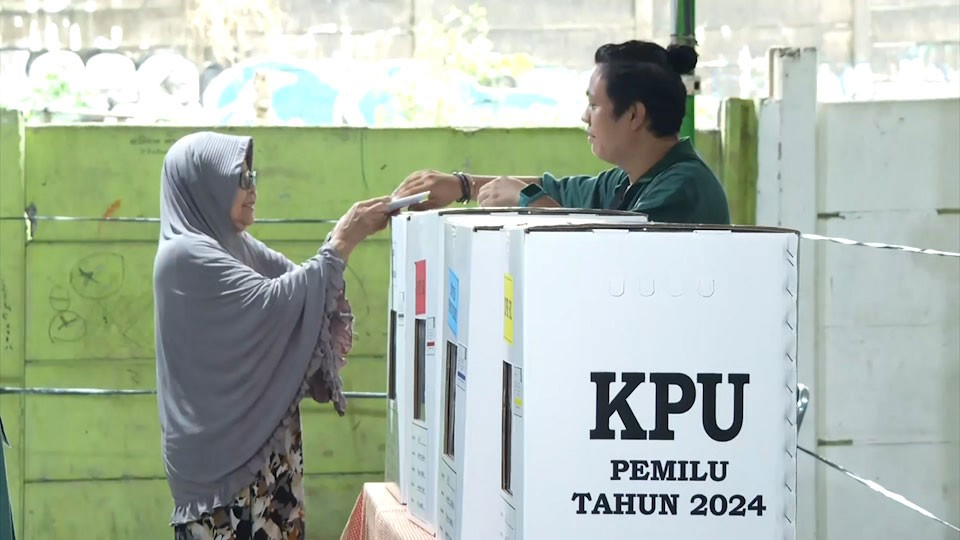Incumbent President Joko Widodo remains very popular among the people but he is constitutionally barred from seeking a third term. The focus is on whether Indonesians will choose to continue to back his policies, or vote for reform.
President Joko, while popular, has undermined democratic values
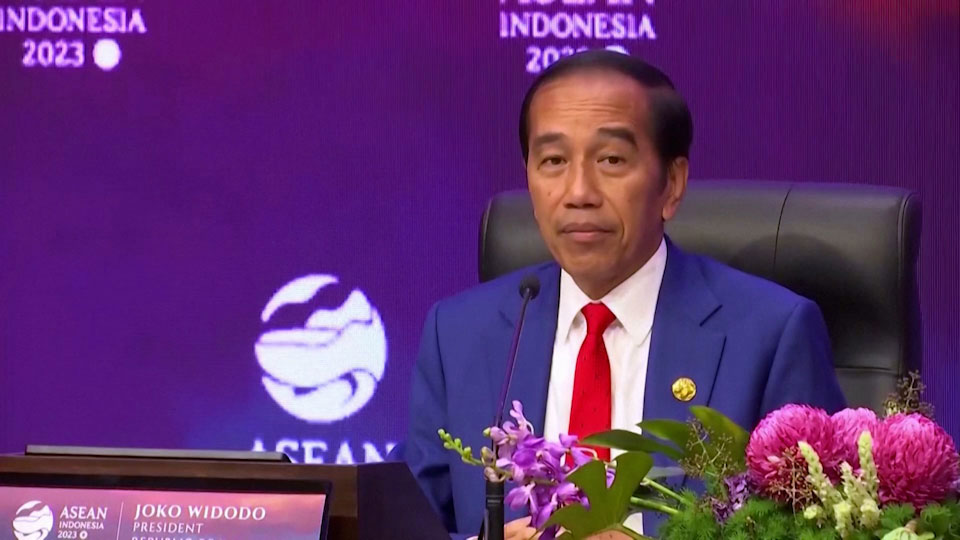
Joko Widodo took office in 2014 and achieved stable growth of around 5 percent for Indonesia, except during the COVID-19 pandemic.
He set a goal of increasing Indonesia's GDP to the fifth largest in the world by 2045. He also devised a plan to relocate the capital.
In addition to his friendly personality, he is still very popular with the people in the final stages of his second term.
On the other hand, Professor Honna Jun of Ritsumeikan University says Indonesian authorities have arrested activists who have become increasingly critical of infrastructure projects promoted by the Joko administration. He also says the administration has been trying to weaken the authority of an organization in charge of investigating corruption among politicians and public servants.
Honna adds the situation in Indonesia over the past decade shows that the Joko administration, which was built on the popular support of the people, has gradually weakened Indonesia's democratic values.
Defense Minister Prabowo Subianto
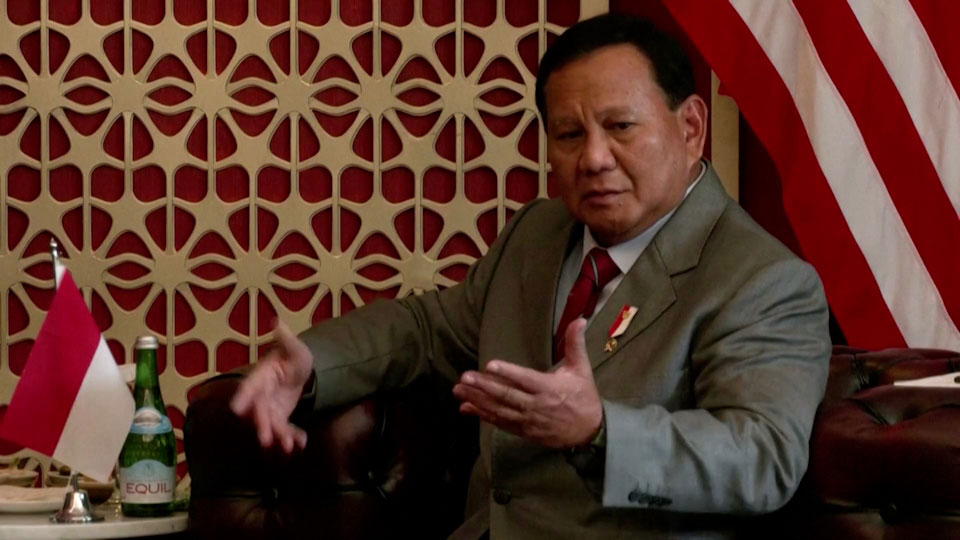
Leading candidate Prabowo Subianto, 72, began his carrier in the army, married the second daughter of former President Suharto, and served as the autocratic Suharto administration's top commander.
In the final days of the Suharto regime, Subianto was discharged from the army for his alleged involvement in the abduction of pro-democracy activists. Human rights groups say 13 activists and students were abducted and are still missing. But he took advantage of personal connections he developed as a military officer and founded a major business conglomerate.
In 2008, Subianto formed his own political party. He ran for president in 2014 and 2019, losing both times to Widodo in close races.
After the last election, and in a move to boost his power base, President Joko Widodo brought Subianto in as defense minister. He strengthened his relations with Joko and supported his second term in office.
In his third run for president, Subianto claims he is Joko's successor. He says he will maintain Joko's policies, such as the relocation of the capital and infrastructure development.
His running mate is Joko's eldest son, Gibran Rakabuming Raka, who is 36 and serves as a local mayor. Subianto's party aims to woo young Indonesians as more than half of voters are under the age of 40.
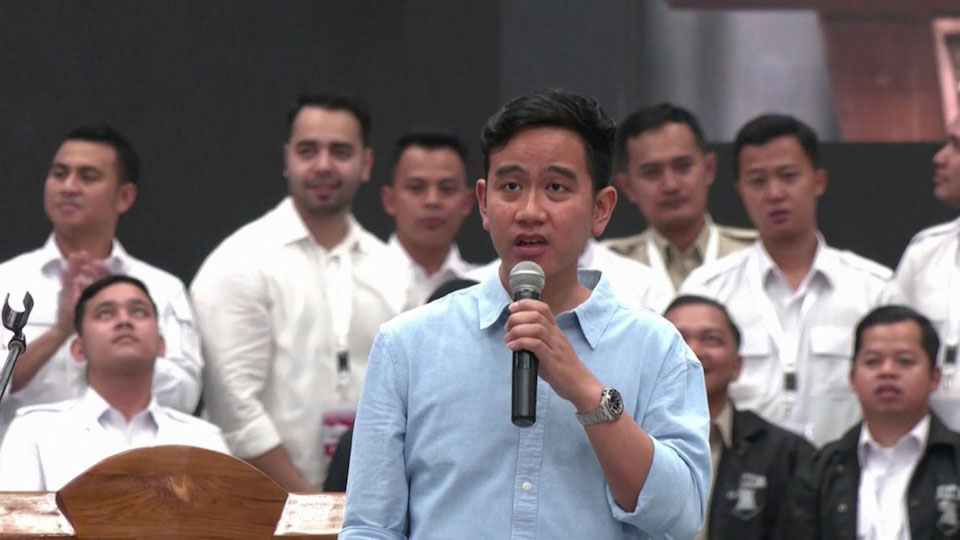
Subianto has implemented a new campaign strategy for his third run for president. He has softened his strongman image, which he touted in past elections, and is instead promoting himself as a man of the people.
Subianto and Gibran are forging ahead in their goal to win the election, but Gibran's run for vice president has ignited controversy.
Indonesia's election law sets a minimum age requirement of 40 for presidential and vice presidential candidates. But a few days before Gibran's candidacy was announced, the Constitutional Court ruled that people under 40 can run for office if they have served as local government heads. This cleared Gibran to run.
The court's chief justice at the time was Joko's brother-in-law and Gibran's uncle.
The decision drew widespread criticism as it was based on cronyism.
The chief justice was later dismissed for serious ethics violations, but the decision was not overturned.
Observers say the move is an attempt by Joko to retain political influence after he leaves office. The camps of the other candidates slammed the move, saying the Joko family will profit from it and that democracy will be under threat.
Former Jakarta governor, Anies Baswedan
Anies Baswedan, became, at the age of 38, the youngest president of a private university in Indonesia. The fifty-four-year-old was also chosen as one of the world's 100 public intellectuals by the US diplomatic journal Foreign Policy.
Baswedan served as minister of education and culture under the Joko administration. He rose onto the political stage by serving as the governor of Jakarta for five years from 2017, leading infrastructure development and urban transportation projects.
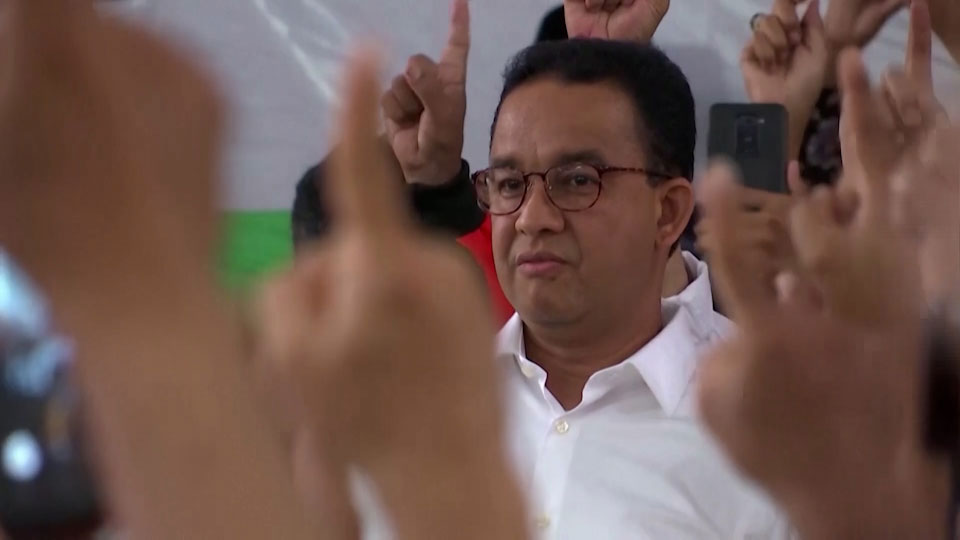
In the election, Baswedan has gained support of those critical of the current administration by calling for reform of Joko's policies, including a partial review of the relocation plan of the capital and correcting the country's economic disparities.
Former Central Java governor, Ganjar Pranowo
The third candidate, Ganjar Pranowo, 55, served as the governor of Central Java province for 10 years starting in 2013.
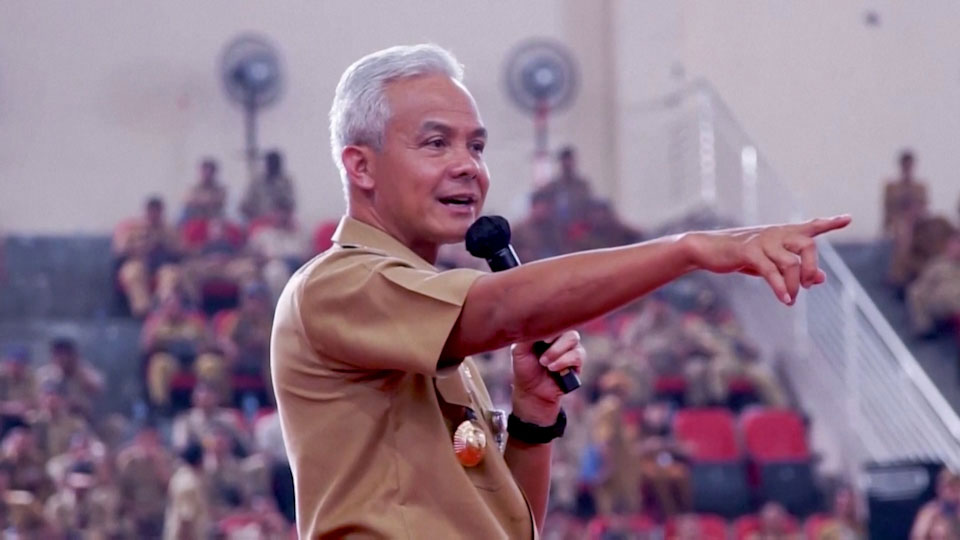
In the election, he vowed to continue Joko's policies, such as promoting value-added industries that make use of the country's rich mineral resources, and a plan to relocate the capital.
Ganjar hails from the ruling Democratic Party of Struggle, to which Joko also belongs. But he lacks the party's endorsement as Joko supports the Prabowo camp, where his son is a vice presidential candidate.
Expert: Indonesia will not make major changes in its economic and foreign policies
Sato Yuri, an executive senior research fellow at JETRO's Institute of Developing Economies, says Indonesia's framework of development policies, including infrastructure, industry and climate change measures under 10 years of the Joko administration, will not change significantly no matter who wins the election on Wednesday.
She says Indonesia's foreign policy strategy of leveraging negotiating power and competitiveness by balancing relations with major powers will remain unchanged.
Sato says China's economic presence in the country will remain strong for at least the next 10 years, and that Indonesia will seek to enhance commercial cooperation with Beijing. On the other hand, she points out that Indonesia will deal cautiously with security issues as it is at odds with China over its exclusive economic zone in the South China Sea.
More than 1,800 Japanese firms are operating in Indonesia, which has the largest population and economy in Southeast Asia. As Indonesia aims to become an advanced country by 2045, she says Japan should help guide the country and promote cooperation from a long-term perspective in areas where Japan has strengths, such as climate change mitigation and human resource development.
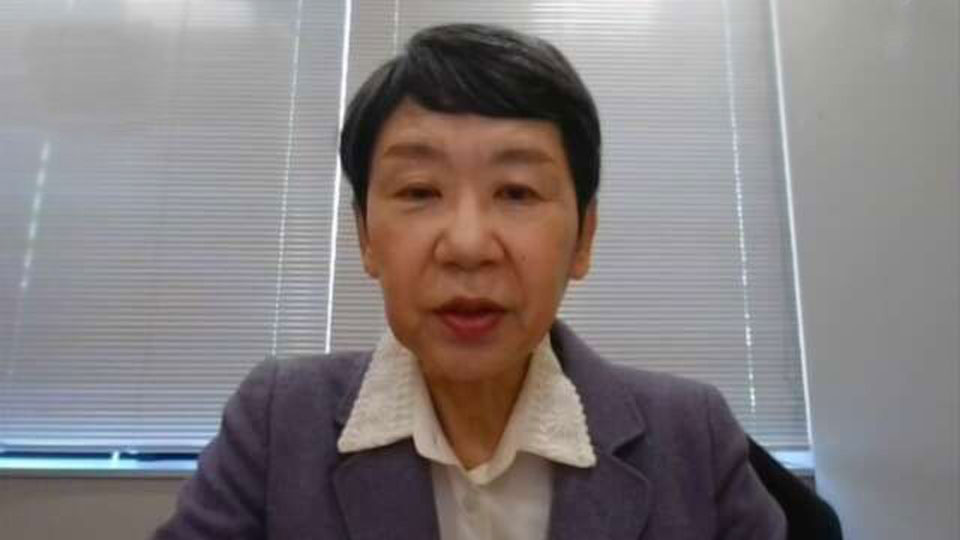
More than 200 million Indonesians choose new president
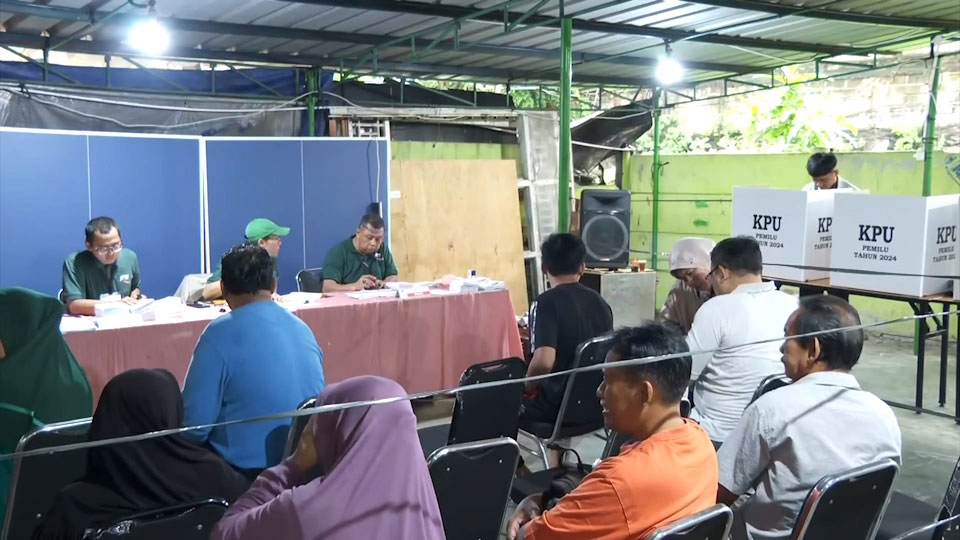
NHK World's Dhra Dhirakaosal visited a polling station in the center of Jakarta on Wednesday morning. At the station people were seen entering voting booths where they punched holes in ballots printed with photos of the candidates' faces. A voter said he hopes Indonesia will continue to develop and improve and that there will be no corruption.
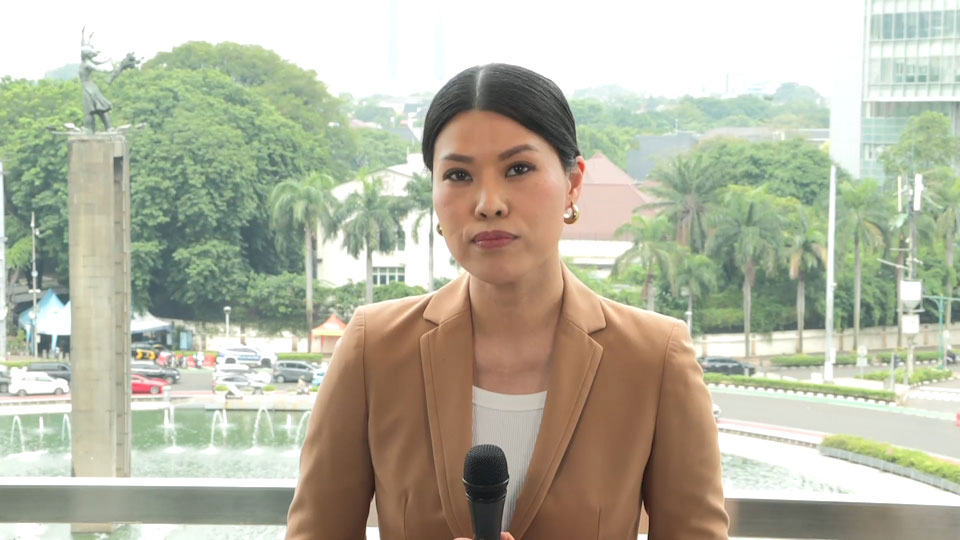
Indonesia has over 820,000 polling stations and more than 200 million eligible voters. About 50% of registered voters are 40 and under, which makes the "youth vote" especially important. The presidential candidates targeted them through social media campaigns.
The country's Election Commission says the official results will take a month to come out. If no candidate wins a majority of the votes, a runoff election will be held in June.
